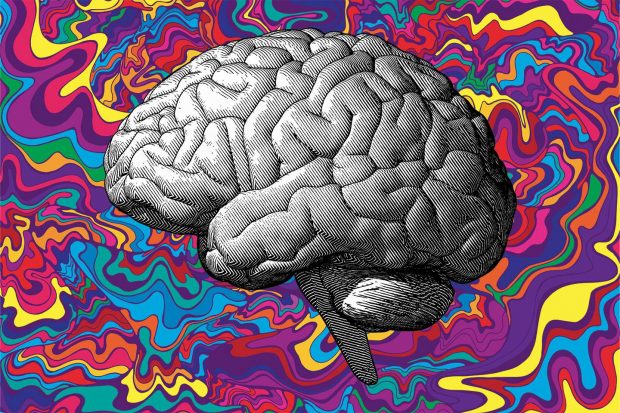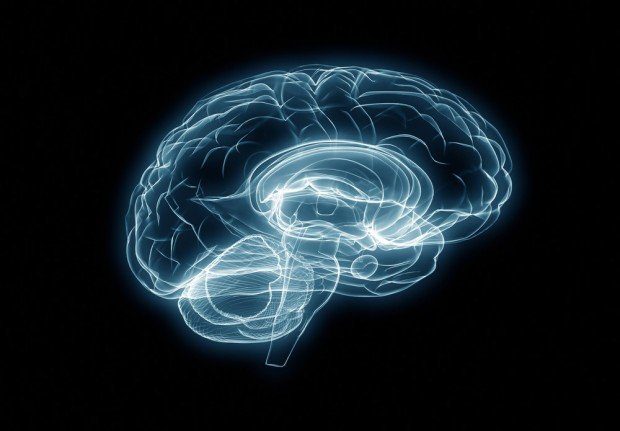Since the start of the Covid-19 pandemic alcohol consumption and binge drinking have increased substantially as a coping mechanism. Add to that, the energy crisis, war in Ukraine, climate change and rising inflation. All of which is playing havoc with our personal and business lives, financial worries and you have a recipe for disaster, writes neurofeedback specialist, Kerry Rudman.
But what exactly is alcohol doing to our brains?
Continuous drinking and binge drinking is like allowing a burglar into your home to access your computer and randomly delete any files that he wants. That’s scary stuff! Far from damaging entire brain cells, alcohol damages dendrites.
These are the tips of nerve cells that deliver incoming messages to the brain. It does this by widening the channels that let calcium flow into the brain. An excess of calcium kills off dendrites, which means you lose incoming messages and get disrupted brain function.

Brain cells exist in a complex state of interconnections – a lot like the branches of a tree. An international academic, Professor Pentney, discovered that after consuming alcohol, these “branches” rearrange themselves differently on the tree.
In her words: “A different branching arrangement would result in a message transmission, which would change the way that particular part of the brain works”
Sadly, scientists have not yet discovered what these structural changes mean, however the plot thickens. There are a number of co-conspirators involved in the alcohol story – calcium is just one.
Why do some people crave more than others?
It turns out that our brains are like radar, seeking out whatever we are deficient in. Several scientists investigating why some people drink more than others, have found that the act of swallowing alcohol causes a release of endorphins in our brains, giving us a feeling of wellbeing, much like a ‘runners high’. And it doesn’t take more than a glass or two to cause this endorphin rush.
Beta-endorphins are a natural kind of ‘morphine’. They are released by the brain whenever we feel pain, excitement, exercise vigorously, or drink alcohol. That’s all very nice for most of us. However, Spanish researchers have found that some people are born with very low levels of beta-endorphins. As such, they will naturally seek out anything that gives them more – and therein lies the path to addiction.
Endorphins and high-risk drinkers
Nature can indeed be cruel. To make matters worse, studies have found that greater amounts of beta-endorphins are released when people are at high risk for alcoholic drinks. This encourages them to drink more than others. However, there’s more. For one, the endorphins levels of high-risk drinkers are three times lower in brain fluids than those of ‘normal people’. Additionally, their levels of the stress hormone, corticotrophin, are four times higher, but so is the resulting level of stress, causing them to return for more.
So how can you help your brain and consume less alcohol?
A conscious decision needs to be taken to consume less alcohol. However, this will not be an instant fix to your problems or fix what has already happened in your brain.
In 1989, Eugene Peniston of the Fort Lyon (CO) VA Medical Center undertook a ground-breaking study. It was on alcoholics who received alpha-theta neurofeedback training in addition to the program normally provided by the facility. Five years after treatment, 70% of the participants were still abstinent.

AndreyCherkasov/Shutterstock
Alcohol and drugs are psychoactive substances. They act in the brain, and their effects represent changes in neurological functioning. It is possible to learn to control one’s brain states from within, without drugs and alcohol. In this way, addictions can be overcome without a lifetime of struggle and craving. Neurofeedback (also called EEG biofeedback) trains the brain to modulate its level of activity. It teaches it to become more or less activated according to the needs of the individual.
Some addictions, such as alcoholism, often involve brain over-activation. In these cases, it can be helpful to teach the brain to quiet down and become less activated. In other cases, for example, in people with ADHD who abuse amphetamines, the brain is under-activated and needs to learn to speed up.
Research has shown that success in alcohol treatment is worse for those alcoholics who have the least alpha and theta activity, and the most beta. This finding supplements the discovery that alcoholics as a group have less alpha and theta and relatively more beta than non-alcoholics. That is, alcoholics form a continuum, with the most cortically hyper-aroused (those with less alpha and theta) showing worse outcomes than others who are less hyper-aroused.
Neurofeedback for alcoholism
Neurofeedback for alcoholism and other addictions is a process of teaching the client first to increase the number of alpha waves, and then to increase theta.
The person progresses into a relaxed, then dreamy and hypnogic state. Eyes are closed, and they receive feedback via sounds presented through headphones. Usually, a reclining chair is used, and a blanket is offered to increase comfort and a sense of security. The room is also darkened or a light-preventing mask is used.
 While in the hypnogogic theta state the client is asked to do visualizations picturing refusal to drink (or to do drugs) and abstinence from alcohol and other substances. For many clients who also suffer from post-traumatic conditions, the hypnogic state facilitates the re-experiencing of traumatic memories in a setting that allows them to finally be processed and remembered in normal ways and placed in the brain. Spiritual experiences often accompany the reprocessing of old memories.
While in the hypnogogic theta state the client is asked to do visualizations picturing refusal to drink (or to do drugs) and abstinence from alcohol and other substances. For many clients who also suffer from post-traumatic conditions, the hypnogic state facilitates the re-experiencing of traumatic memories in a setting that allows them to finally be processed and remembered in normal ways and placed in the brain. Spiritual experiences often accompany the reprocessing of old memories.
The second subset of addicts is cortically under-aroused and needs to activate their brains. Cocaine and methamphetamine users, for example, are different from most alcoholics – in some ways 180 degrees apart. Those who prefer speed typically show high amounts of theta to start, and so need a different protocol, at least at the beginning.
Although this is a different pattern from alcoholism, we see the same effort at self-medication here: amphetamines reduce slow wave activity (theta and low alpha waves) and increase beta. This is rewarding for the sluggish, under-activated brains of cocaine and amphetamine users.
Want to know more?
While neurofeedback can help protect the brain against the effects of alcohol consumption, new research has emerged that suggests that the power of psychedelics may help address alcohol abuse.
Who is the author?

Kerry Rudman
Kerry Rudman is the owner of Brain Harmonics. She is passionate about this business, helping people, and results. It took her years to find a modality that she could fully stand behind.



![women [longevity live]](https://longevitylive.com/wp-content/uploads/2020/01/photo-of-women-walking-down-the-street-1116984-100x100.jpg)










